Exclusive 3:16 Interview With Henry Sidgwick
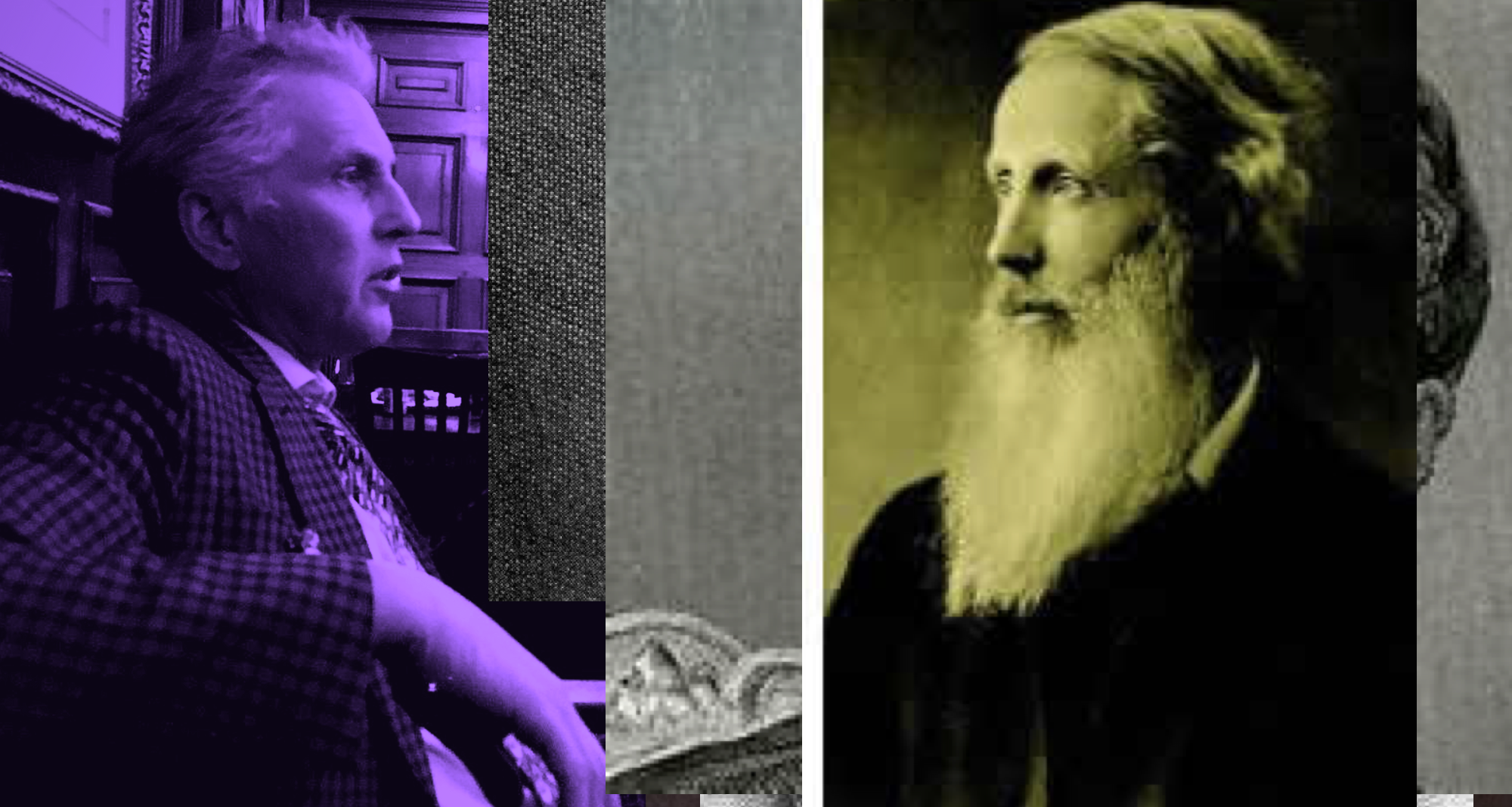
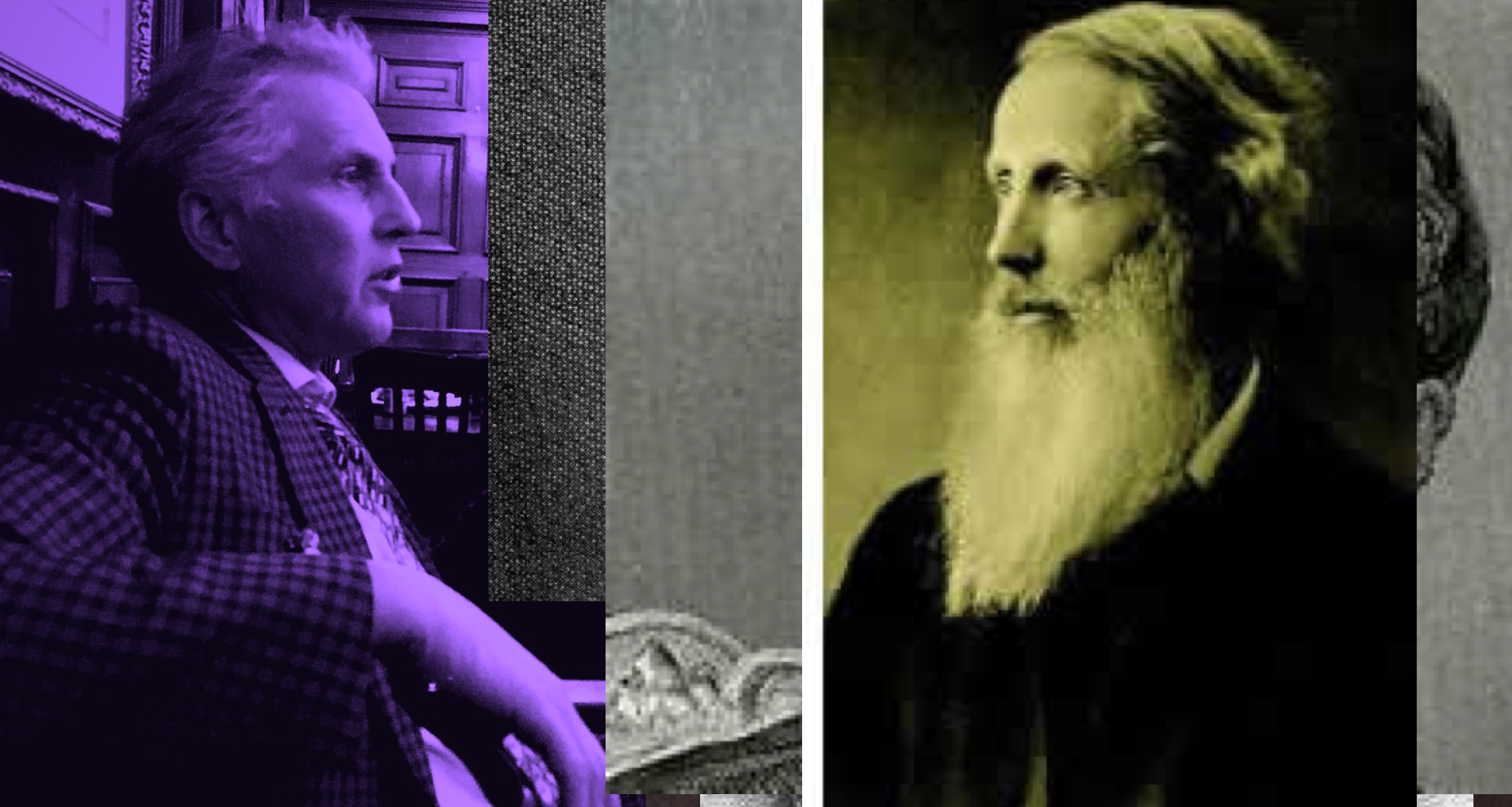
According to Schultz, Barton, "Henry Sidgwick", The Stanford Encyclopedia of Philosophy (Fall 2024 Edition)'Henry Sidgwick was one of the most influential ethical philosophers of the Victorian era, and his work continues to exert a powerful influence on Anglo-American ethical and political theory, with an increasing global impact as well. His masterpiece, The Methods of Ethics was first published in 1874 (seventh edition: 1907) and in many ways marked the culmination of the classical utilitarian tradition—the tradition of Jeremy Bentham and James and John Stuart Mill—with its emphasis on “the greatest happiness of the greatest number” as the fundamental normative demand. Sidgwick’s treatment of that position was more comprehensive and scholarly than any previous one, and he set the agenda for most of the twentieth-century debates between utilitarians and their critics. Utilitarians and consequentialists from G. E. Moore and Bertrand Russell to J. J. C. Smart and R. M. Hare down to Derek Parfit, Peter Singer, and Katarzyna de Lazari-Radek have acknowledged Sidgwick’s Methods as a vital source for their arguments. But in addition to authoritatively formulating utilitarianism and inspiring utilitarians and their sympathizers, the Methods has also served as a general model for how to do ethical theory, since it provides a series of systematic, historically informed comparisons between utilitarianism and its leading alternatives.'
3:16: What made you become a philosopher?
Henry Sidgwick: I conceive it as the aim of a philosopher, as such, to do somewhat more than define and formulate the common normal opinions of mankind. His function is to tell men what they ought to think, rather than what they do think: he is expected to transcend Common Sense in his premises, and is allowed a certain divergence from Common Sense in his conclusions.
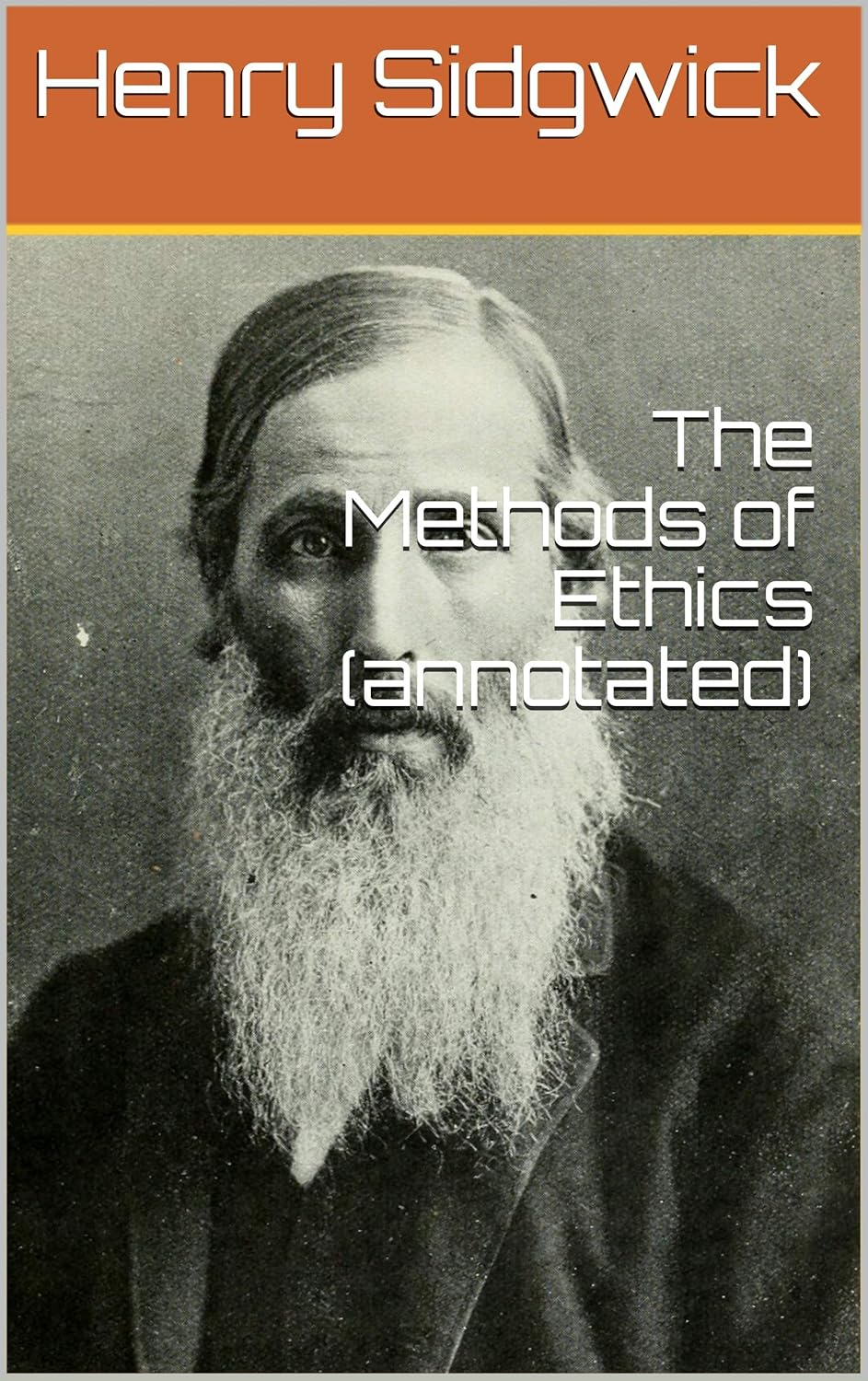
3:16: And this is how you think moral philosophy should proceed?
HS: Yes Richard. We should expect that the history of Moral Philosophy--so far at least as those whom we may call orthodox thinkers are concerned--would be a history of attempts to enunciate, in full breadth and clearness, those primary intuitions of Reason, by the scientific application of which the common moral thought of mankind may be at once systematized and corrected. So I am occupied from first to last in considering how conclusions are to be rationally reached in the familiar matter of our common daily life and actual practice ; still, my immediate object — to invert Aristotle’s phrase — is not Practice but Knowledge.
3:16: Your philosophy largely ignores psychology and metaphysics in order to do this doesn’t it?
HS: That's true Richard. It is not, in the main, metaphysical or psychological : at the same time it is not dogmatic or directly practical : it does not deal, except by way of illustration, with the history of ethical thought : in a sense it might be said to be not even critical, since it is only quite incidentally that it offers any criticism of the systems of individual moralists. It claims to be an examination, at, once expository and critical, of the different methods of obtaining reasoned convictions as to what ought to be done which are to be found — either explicit or implicit — in the moral consciousness of mankind generally: and which, from time to time, have been developed, either singly or in combination, by individual thinkers, and worked up into the systems now historical.
3:16: You specialise in ethics - so for you, what is ethics?
HS: Most men wish not only to understand human action, but also to regulate it; they apply the ideas ' good ' and ' bad,' right ' and 'wrong,' to the conduct or institutions which they describe; and thus pass, as I should say, from the point of view of Psychology or Sociology to the point of view of Ethics or Politics. My definition of Ethics is designed to mark clearly the fundamental importance of this transition.
3:16: So there’s a close relationship between ethics and politics?
HS: Yes. Ethics aims at determining what ought to be done by individuals, while Politics aims at determining what the government of a state or political society ought to do and how it ought to be constituted, — including under the latter head all questions as to the control over government that should be exercised by the governed. From different points of view, each of these two studies seems to be properly subordinate to the other.
3:16: You say you’re interested in studying different methods of ethics. What do you mean by this?
HS: My object is to expound as clearly and as fully as my limits will allow, the different methods of Ethics that I find implicit in our common moral reasoning; to point out their mutual relations ; and where they seem to conflict, to define the issue as much as possible. In the course of this endeavour I am led to discuss the considerations which should, in my opinion, be decisive in determining the adoption of ethical first principles: but it is not my primary aim to establish such principles; nor, again, is it my primary aim to supply a set of practical directions for conduct.
3:16: Recently Nietzsche has argued that we don’t have freewill and therefore we need to rethink notions of morality. Do you agree with him?
HS: Freedom of the Will is still differently decided by thinkers of repute ; and I do not myself wish at present to pronounce any decision on it. But I think it possible and useful to show that the ethical importance of deciding it one way or another is liable to be exaggerated : and that any one who will consider the matter soberly and carefully will find this importance to be of a strictly limited kind.
Some Libertarian writers maintain that the conception of the Freedom of the Will, alien as it may be to positive science, is yet quite indispensable to Ethics and Jurisprudence , since in judging that I “ ought ” to do anything I imply that I “ can ” do it, and similarly in praising or blaming the actions of others I imply that they could '' have acted otherwise. If a man's actions are mere links in a chain of causation which, as we trace it back, ultimately carries us to events anterior to his personal existence, he cannot, it is said, really have either merit or demerit ; and if he has not merit or demerit, it is repugnant to the common moral sense of mankind to reward or punish — even to praise or blame — him.
As regards action generally, the Determinist allows that, in a sense, “ ought ” implies “ can,” and that a man is only morally bound to do what is ''in his power''; but he explains " can " and "in his power " to mean that the result in question will be produced if the man choose to produce it. And this is, I think, the sense in which the proposition " what I ought to do I can do" is ordinarily accepted : it means " can do if I choose " not " can choose to do."
3:16: Still the question remains " Gan I choose what — if I can choose — I judge to be right to do." So what do you say?
HS: My own view is that — within the limits above explained-- inevitably conceive that I can choose ; however, I can suppose myself to regard this conception as illusory, and to judge, inferring the future from the past, that I certainly shall not choose, and accordingly that such choice is not really possible to me. This being supposed, it seems to me undeniable that this judgment will exclude or weaken the operation of the moral motive in the case of the act contemplated: I either shall not judge it reasonable to choose to do what I should otherwise so judge, or if I do pass the judgment, I shall also judge the conception of duty applied in it to be illusory, no less than the conception of Freedom.
So far I concede the Libertarian contention as to the demoralizing effect of Determinism, if held with a real force of conviction. But I think the cases are rare in which it is even on Determinist principles legitimate to conclude it to be certain — and not merely highly probable — that I shall deliberately choose to do what I judge to be unwise. Ordinarily the legitimate inference from a man's past experience, and from his general knowledge of human nature, would not go beyond a very strong probability that he would choose to do wrong : and a mere probability — however strong — that I shall not will to do right cannot be regarded by me in deliberation as a reason for not willing: while it certainly supplies a rational ground for willing strongly — just as a strong probability of any other evil supplies a rational ground for special exertions to avoid it.
Indeed, I do not see why a Libertarian should not — equally with a Determinist — accept as valid, and find it instructive to contemplate, the considerations that render it probable that he will not choose to do right in any particular circumstances. In all ordinary cases, therefore, it does not seem to me relevant to ethical deliberation to determine the metaphysical validity of my consciousness of freedom to choose whatever I may conclude to be reasonable, unless the affirmation or negation of the Freedom of the Will somehow modifies my view of what it would be reasonable to choose to do if I could so choose. Nor, again, is it generally important to determine whether we are always, metaphysically speaking, ' free ' to do what we clearly see to be right. What I ‘ ought’ to do, in the strictest use of the word 'ought,’ is always ' in my power,’ in the sense that there is no obstacle to my doing it except absence of adequate motive; and it is ordinarily impossible for me, in deliberation, to regard such absence of motive as a reason for not doing what I otherwise judge to be reasonable.
3:16: What do you make of the Sentimentalist who thinks ethics are just expressions of feelings?
HS: The aim of Ethics is to systematize and free from error the apparent cognitions that most men have of the rightness or reasonableness of conduct, whether the conduct be considered as right in itself, or as the means to some end commonly conceived as ultimately reasonable. These cognitions are normally accompanied by emotions of various kinds, known as ‘'moral sentiments:’’ but an ethical judgment cannot explained as affirming merely the existence of such a sentiment : indeed it is an essential characteristic of a moral feeling that it is bound up with an apparent cognition of something more than mere feeling. Such cognitions, again, I have called 'dictates or 'imperatives’; because, in so far as they relate to conduct which one is deliberating, they are accompanied by a certain impulse to do the acts recognized as right.
3:16: But emotions of sympathy do seem important in deciding what is the right thing to do nevertheless aren’t they?
HS: Yes. There seem to be numberless ways in which the dictates of that Rational Benevolence, which as a Utilitarian he is bound absolutely to obey, may coincide with that indulgence of kind affections which Shaftesbury and his followers so persuasively exhibit as its own reward.
3:16: You find Utilitarianism of a certain kind to be compelling. Is it right to say that this is a refined sort of hedonism?
HS: Well let's be careful Richard, I have made as marked a separation as possible between Epicureanism or Egoistic Hedonism, and the Universalistic or Benthamite Hedonism to which I propose to restrict the term Utilitarianism.
3:16: What do you mean by Egoistic in this context?
HS: The term Egoism merely implies that some reference to self is made in laying down first principles of conduct.
3:16: Don't you think somethings have a higher quality of pleasure than others, and doesn't that mess up the Utilitarian calculations?
HS: So far as Self-love operates, we merely consider the amount of pleasure or satisfaction : to use Bentham's illustration, ''quantity of pleasure being equal, push-pin is as good as poetry.’'
3:16: So quality has to reduce to quantity?.
HS: Yes. it seems to me that in order to work out consistently the method that takes pleasure as the sole ultimate end of rational conduct, Bentham’s proposition must be accepted, and all qualitative comparison of pleasures must really resolve itself into quantitative. The distinctions of quality that Mill and others urge may still be admitted as grounds of preference, but only in so far as they can be resolved into distinctions of quantity.
3:16: So it’s the quantity of pleasure alone that counts?
HS: Yes. The rational agent regards quantity of consequent pleasure and pain to himself as alone important in choosing between alternatives of action; and seeks always the greatest attainable surplus of pleasure over pain — which, without violation of usage, we may designate as his 'greatest happiness.'
3:16: The intuitionist seems to think there are other moral axioms. So first, what is Intuitionism for you?
HS: I have used the term 'intuition’ to denote the view of ethics which regards as the practically ultimate end of moral actions their conformity to certain rules or dictates of Duty unconditionally prescribed.
3:16: So the intuitionist doesn’t judge actions by some external standard?
HS: The Intuitionist properly speaking — in contrast with the Utilitarian — does not judge actions by an external standard at all; that true morality, in his view, is not concerned with outward actions as such, but with the state of mind in which acts are done — in short with "intentions” and "motives.
3:16: But don’t motives matter when we come to assess what people do?
HS: Well Richard, while many actions are commonly judged to be made better or worse by the presence or absence of certain motives, our judgments of right and wrong strictly speaking relate to intentions, as distinguished from motives; and that while intentions affecting the agent's own feelings and character are morally prescribed no less than intentions to produce certain external effects, still, the latter form the primary — though not the sole — content of the main prescriptions of duty, as commonly affirmed and understood.
3:16: This would be the kind of thing we find in, for example, Kant.
HS: Kant seems to have held that all particular rules of duty can be deduced from the one fundamental rule '' Act as if the maxim of thy action were to become by thy will a universal law of nature.” But this appears to me an error analogous to that of supposing that Formal Logic supplies a complete criterion of truth. I should agree that a volition which does not stand this test is to be condemned ; but I hold that a volition which does stand it may after all be wrong. For I conceive that all (or almost all) persons who act conscientiously could sincerely will the maxims on which they act to be universally adopted: while at the same time we continually find such persons in thoroughly conscientious disagreement as to what each ought to do in a given set of circumstances. Under these circumstances, to say that all such persons act rightly — in the objective sense — because their maxims all conform to Kant's fundamental rule, would obliterate altogether the distinction between subjective and objective rightness; it would amount to affirming that whatever any one thinks right is so, unless he is in error as to the facts of the case to which his judgment applies.
3:16: So are you out to disprove intuitionist thinking?
HS: I am not trying to prove or disprove Intuitionism, but merely by reflection on the common morality which I and my readers share, and to which appeal is so often made in moral disputes, to obtain as explicit, exact, and coherent a statement as possible of its fundamental rules.
3:16: How then does Intuitionism dovetail with Utilitarianism in some respects?
HS: Well, Richard, during the first period of ethical controversy in modern England, after the audacious enunciation of Egoism by Hobbes had roused in real earnest the search for a philosophical basis of morality, Utilitarianism appears in friendly alliance with Intuitionism.
It was not to supersede but to support the morality of Common Sense, against the dangerous innovations of Hobbes, that Cumberland declared “ the common good of all Rationale ” to be the end to which moral rules were the means. We find him quoted with approval by Clarke, who is commonly taken to represent Intuitionism in an extreme form. Not does Shaftesbury, in introducing the theory of a moral sense, seem to have dreamt that it could ever impel us to actions not clearly conducive to the Good of the Whole: and his disciple Hutcheson expressly identified its promptings with those of Benevolence.
Butler, I think, was our first writer who dwelt on the discrepancies between virtue as commonly understood and conduct likeliest to produce an overbalance of happiness. When Hume presented Utilitarianism as a mode of explaining current morality, it was seen or suspected to have a partially destructive tendency. But it was not till the time of Paley and Bentham that it was offered as a method for determining conduct, which was to overrule all traditional precepts and supersede all existing moral sentiments.
3:16: Is it then the unreliability of intuitionism that strikes you as its weakness?
HS: Yes Richard. In the first period all orthodox moralists were occupied in refuting Hobbism. But this system, though based on Materialism and Egoism, was yet intended as ethically constructive. Accepting in the main the commonly received rules of social morality, it explained them as the conditions of peaceful existence which enlightened self-interest directed each individual to obey ; provided only the social order to which they belonged was not merely ideal, but made actual by a strong government. Now no doubt this view renders the theoretical basis of duty seriously unstable; still, assuming a decently good government, Hobbism may claim to at once explain and establish, instead of undermining, the morality of Common Sense.
3:16: So this is where a more secure method is felt needed?
HS: Yes. The more thoughtful felt that system must be met by system and explanation by explanation, and that they must penetrate beyond the dogmas of common sense to some more irrefragable certainty. And so, while Cumberland found this deeper basis in the notion of 'the common good of all nationals” as an ultimate end, Clarke sought to exhibit the more fundamental of the received rules as axioms of perfect self-evidence, necessarily forced upon the mind in contemplating human beings and their relations.
3:16: And eventually these attempts were seen to fail and ethics became more about feelings and sensations?
HS: By degrees the attempt to exhibit morality as a body of scientific truth fell into discredit, and the disposition to dwell on the emotional side of the moral consciousness became prevalent.
3:16: Ah, so this is where you think the sentimentalist ethics arose – Hutchinson, Smith and Hume bring the parade cases ?
HS: Yes Richard. For example, we find Hutcheson asking why the moral sense should not vary in different human beings, as the palate does, without dreaming that there is any peril to morality in admitting such variations as legitimate.
3:16: Bringing back cognitivism and common sense was in a way a response to Hume wasn’t it?
HS: Haha, yes indeed. When the new doctrine was endorsed by the dreaded name of Hume, its dangerous nature, and the need of bringing again into prominence the cognitive element of moral consciousness, was clearly seen: and this work was undertaken as a part of the general philosophic protest of the Scottish School against the Empiricism that had culminated in Hume.
3:16: How did it profess to do this?
HS: It met Empiricism on its own ground, and showed among the facts of psychological experience which the Empiricist professed to observe, the assumptions which he repudiated. And thus in Ethics it was led rather to expound and reaffirm the morality of Common Sense, than to offer any profounder principles.
3:16: There’s a history of ethical virtue and pleasure that sees them as rivals.
HS: Indeed. Plato felt the conflict between Virtue and Pleasure far more intensely, so that in one phase of his mental development he repudiated the latter as an object of rational pursuit : still his general tendency — no less than that of Aristotle — is to regard the two as inseparable. The Good which he investigated persistently and profoundly we must conceive as something of which the manifestation in concrete human life involves the attainment of the greatest real pleasure of which human nature is capable, as well as the realization of Virtue. It is not until the post-Aristotelian period that the antithesis presents itself as an irreconcilable antagonism ; and that the main influence of philosophy upon mankind is divided between the two schools which present Virtue and Pleasure as competing interpretations of the problematical notion of Ultimate Good.
3:16: Desires are good then?
HS: I hold myself that the satisfaction of any desire is pro tanto good; and that an equal regard for all the moments of our conscious experience — so far, at least, as the mere difference of their position in time is concerned — is an essential characteristic of rational conduct.
3:16: So fulfilling our desires is the ultimate good?
HS: “Ultimate good” without qualification must be taken to mean what rational beings as such would desire, assuming them to have an equal and impartial concern for all existence. I shall therefore confidently lay down, that if there be any Good other than Happiness to be sought by man, as an ultimate practical end, it can only be the Goodness, Perfection, or Excellence of Human Existence.
3:16: Yet you doubt whether every virtue is coincidental with the most amount of pleasure. I can think of loads of things which would give me pleasure but I wouldn’t regard them as virtuous.
HS: Of course Richard - it is easy to exhibit this coincidence between Virtue and Happiness rhetorically and popularly; still, when we carefully analyze and estimate the consequences of Virtue to the virtuous agent, it appears improbable that this coincidence is complete and universal.
3:16: Is Utilitarianism just a way of saying 'being kind to everyone' is the highest good?
HS: Utilitarianism is sometimes said to resolve all virtue into universal and impartial Benevolence: it does not, however, prescribe that we should love all men equally, but that we should aim at Happiness generally as our ultimate end, and so consider the happiness of any one individual as equally important with the equal happiness of any other, as an element of this total ; and should distribute our kindness so as to make this total as great as possible, in whatever way this result may be attained. Practically of course the distribution of any individual’s services will, even on this view, be unequal : as each man will obviously promote the general happiness best by rendering services to a limited number, and to some more than others : but the inequality, on the Utilitarian theory, is secondary and derivative.
3:16: How do you approach the notion of prioritizing benevolence?
HS: The question then is, on what principles, when any case of doubt or apparent conflict of duties arises, we are to determine the nature and extent of the special claims to affection and kind services which arise out of these particular relations of human beings. Are problems of this kind to be solved by considering which course of conduct is on the whole most conducive to the general happiness, or can we find independent and self-evident principles sufficiently clear and precise to furnish practical guidance in such cases. The different answers given to this fundamental question will obviously constitute the main difference between the Intuitional and Utilitarian methods; so far as the 'good’ which the benevolent man desires and seeks to confer on others is understood to be Happiness.

3:16: So what does the Utilitarian say we should do?
HS: The Utilitarian doctrine, as we have seen, is that each man ought to consider the happiness of any other as theoretically of equal importance with his own, and only of less importance practically in so far as he is better able to realize the latter. And it seems to me difficult to say decidedly that this is not the principle of general Benevolence, as recognized by the common sense of mankind.
3:16: So although I might agree that we’re al equal, practicality intervenes and shapes what I do. But that doesn’t say whether I ought to do that.
HS: I must admit that while we find a number of broad and more or less indefinite rules unhesitatingly laid down by Common Sense in this department of duty, it is difficult or impossible to extract from them, so far as they are commonly accepted, any clear and precise principles for determining the extent of the duty in any case.
3:16: What about in the sphere of justice? Does Utilitarianism help achieve egalitarianism there?
HS: If we take as the principle of ideal justice, so far as this can be practically aimed at in human society, the requital voluntary services in proportion to their worth, it remains to consider on what principle or principles the comparative worth of different services is to he rationally estimated. Justice is something that we conceive to be intrinsically capable of perfectly definite determination: a scrupulously just man, we think, must be very exact and precise in his conduct.
But when we consider that part of Justice which consists in satisfying such natural and customary claims as arise independently of contract, it seems impossible to estimate these claims with any exactness. The attempt to map out the region of Justice reveals to us a sort of margin or dim borderland, tenanted by expectations which are not quite claims and with regard to which we do not feel sure whether Justice does or does not require us to satisfy them.
3:16: And because of this vagueness you think Utilitarianism can help work out what to do, albeit in a rough and ready way?
HS: I know no method of determining a problem of this kind which is not either implicitly utilitarian, or arbitrarily dogmatic, and unsupported by Common Sense.
3:16: Common sense seems to make us want to obey laws and keep our promises even though when we think about justifying doing this we can’t formulate compelling reasons that every reasonable person could agree to. Is finding a consensus another reason why you find Utilitarianism the best method?
HS: There is, no doubt, a vague general habit of obedience to laws as such (even if bad laws), which may fairly claim the universal consensus of civilized society but when we try to state any explicit principle corresponding to this general habit, the consensus seems to abandon us, and we are inevitably drawn into controversies which seem to admit of no solution except that offered by the utilitarian method.
3:16: So for you Intuitionism and other approaches just can’t offer a method that would even get close to arriving at a consensus regarding what we do – whether it be deciding what is good, virtuous, benevolent, just, whether we should tell the truth, - whereas you think Benthamite Utilitarianism has a strong chance of getting us close to general agreement?
HS: Look Richard, it seemed undeniable that men judge some acts to be right and wrong in themselves, without consideration of their tendency to produce happiness to the agent or to others : and indeed without taking their consequences into account at all, except in so far as these are included in the common notion of the act. However, that in so far as these judgments are passed in particular cases, they seem to involve (at least for the more reflective part of mankind) a reference of the case to some general rule of duty: and that in the frequent cases of doubt or conflict of judgments as to the rightness of any action, appeal is commonly made to such rules or maxims, as the ultimately valid principles of moral cognition.
3:16: And so you’re trying to investigate how we might systematize this?
HS: Indeed I am Richard. So, in order, therefore, to throw the Morality of Common Sense into a scientific form, it seemed necessary to obtain as exact a statement as possible of these generally recognized principles. I did not think that I could dispense myself from this task by any summary general argument, based on the unscientific character of common morality. There is no doubt that the moral opinions of ordinary men are in many points loose, shifting, and mutually contradictory, but it does not follow that we may not obtain from this fluid mass of opinion, a deposit of clear and precise principles commanding universal acceptance.
3:16: I’m interested that you didn’t think this could be just assumed. This make you a realist about ethics - you look for empirical evidence by looking at what people are doing and how they reason to support your views?
HS: The question, whether we can do this or not, seemed to me one which should not be decided d priori without a fair trial. I have endeavoured to ascertain impartially, by mere reflection on our common moral discourse, what are the general principles or maxims, according to which different kinds of conduct are judged to be right and reasonable in different departments of life. I wish it to be particularly observed, that my sole object has been to make explicit the implied premises of our common moral reasoning.
3:16: What would make things clear enough for there to be a good enough method?
HS: Four things Richard. The terms of the proposition must be clear and precise. The rival originators of modern Methodology, Descartes and Bacon, vie with each other in the stress that they lay on this point : and the latter’s warning against the notiones male terminatse ” of ordinary thought is peculiarly needed in ethical discussion. The self-evidence of the proposition must be ascertained by careful reflection. The propositions accepted as self-evident must be mutually consistent.
And, since it is implied in the very notion of Truth that it is essentially the same for all minds, the denial by another of a proposition that I have affirmed has a tendency to impair my confidence in its validity. And in fact ' universal ' or ' general ’ consent has often been held to constitute by itself a sufficient evidence of the truth of the most important beliefs; and is practically the only evidence upon which the greater part of mankind can rely.
3:16: And you think all the maxims laid out as moral duties just don’t achieve these four things and so we can’t rely on any conclusions being drawn from them? This is why Intuitionism fails for you?
HS: It seems clear that, generally speaking, its maxims do not fulfil the conditions just laid down. So long as they are left in the state of somewhat vague generalities, as we meet them in ordinary discourse, we are disposed to yield them unquestioning assent, and it may be fairly claimed that the assent is approximately universal — in the sense that any expression of dissent is eccentric and paradoxical. But as soon as we attempt to give them the definiteness which science requires, we find that we cannot do this without abandoning the universality of acceptance.
3:16: But actually, as you said earlier, you think that when we push Intuitionism to its logical end it results in Utilitarianism? I think recently Parfit agreed with you on this.
HS: Indeed Richard. I am finally led to the conclusion that the Intuitional method rigorously applied yields as its final result the doctrine of pure Universalistic Hedonism, which it is convenient to denote by the single word, Utilitarianism. I've never heard of Parfit. Who is he?
3:16: Parfit's kind of a fan of yours. Anyway, Utilitarianism is where you go for the clarity and certainty we need for our ethical beliefs?
HS: I find that I arrive, in my search for really clear and certain ethical intuitions, at the fundamental principle or Utilitarianism.
3:16: You try and clarify some of its basic terms because you find Mill and other exponents somewhat vague in some respects don’t you?
HS: When I examine the ''proof” of the "principle of Utility” presented by the most persuasive and probably the most influential among English expositors of Utilitarianism, — J. S. Mill — I find the need of some such procedure to complete the argument very plain and palpable.
3:16: So what is Utilitarian in your hands?
HS: The term Utilitarianism is, at the present day, in common use, and is supposed to designate a doctrine or method with which we are all familiar. But on closer examination, it appears to be applied to several distinct theories, having no necessary connection with one another, and not even referring to the same subject-matter. By Utilitarianism is here meant the ethical theory, that the conduct which, under any given circumstances, is objectively right, is that which will produce the greatest amount of happiness on the whole ; that is, taking into account all whose happiness is affected by the conduct. It would tend to clearness if we might call this principle, and the method based upon it, by some such name as Universalistic Hedonism.
3:16: And this contrasts with Egoistical Utilitarianism as we clarified earlier.
HS: Yes Richard. The difference between the propositions that each ought to seek his own happiness, and that each ought to seek the happiness of all, is obvious and glaring.
3:16: But people do tend to act for their own interests – so the Egoistic hedonism seems more likely than your type of Hedonism?
HS: Well Richard, from the fact that everyone actually does seek his own happiness we cannot conclude, as an immediate and obvious inference, that he ought to seek the happiness of other people.
3:16: So how do you answer the Egoist, or for that matter those who hold different morals, such as Intuitionists who might find principles of truth, justice, obedience to some higher authority, purity and so forth compelling?
HS: What is needed is a line of argument which on the one hand allows the validity, to a certain extent, of the maxims already accepted, and on the other hand shows them to be not absolutely valid, but needing to be controlled and completed by some more comprehensive principle.
3:16: So if we take the Egoist as an example, what should the Utilitarian do?
HS: All that the Utilitarian can do is to effect as far as possible a reconciliation between the two principles, by expounding to the Egoist the sanctions of rules deduced from the Universalistic principle, — that is by pointing out the pleasures and pains that may be expected to accrue to the Egoist himself from the observation and violation respectively of such rules. It is obvious that such an exposition has no tendency to make him accept the greatest happiness' of the greatest number as his ultimate end; but only as a means to the end of his own happiness.
3:16: So this isn’t a proof of Universal Hedonism then?
HS: No. When, however, the Egoist puts forward, implicitly or explicitly, the proposition that his happiness or pleasure is Good, not only for him but from the point of view of the Universe, — as for example by saying that 'nature designed him to seek his own happiness’, — it then becomes relevant to point out to him that his happiness cannot be a more important part of Good, taken universally, than the equal happiness of any other person. And thus, starting with his own principle, he may be brought to accept Universal happiness or pleasure as that which is absolutely and without qualification Good or Desirable : as an end, therefore, to which the action of a reasonable agent as such ought to be directed.
3:16: An Intuitionist might well agree that the Utilitarian principle is a moral axiom, but say it's just one of several. What do you say to them?
HS: The Utilitarian must, in the first place, endeavour to show to the Intuitionist that the principles of Truth, Justice and so on have only a dependent and subordinate validity: and further, that the different rules are liable to conflict with each other, and that we require some higher principle to decide the issue thus raised; and again, that the rules are differently formulated by different persons. Utilitarianism sustains the general validity of the current moral judgments, and thus supplements the defects which reflection finds in the intuitive recognition of their stringency; and at the same time affords a principle of synthesis, and a method for binding the unconnected and occasionally conflicting principles of common moral reasoning into a complete and harmonious system.
3:16: It’s interesting that you think Utilitarianism is anti-Common Sense because for some time it was thought to be pretty much in line with it wasn’t it?
HS: Well it’s true, Richard, that since Bentham we have been chiefly familiar with the negative or aggressive aspect of the Utilitarian doctrine. But when Cumberland, replying to Hobbes, put forward the general tendency of the received moral rules to promote the '"common Good of all Rationale” his aim was simply Conservative; it never occurs to him to consider whether these rules as commonly formulated are in any way imperfect, and whether there are any discrepancies between such common moral opinions and the conclusions of Rational Benevolence. So in Shaftesbury’s system the '"Moral” or ""Reflex Sense” is supposed to be always pleased with that ""balance” of the affections which tends to the good or happiness of the whole, and displeased with the opposite.
3:16: And Hume continued this didn’t he?
HS: Yes. In Hume’s treatise this coincidence is drawn out more in detail, and with a more definite assertion that the perception of utility or the reverse is in each case the source of the moral likings (or aversions) which are excited in us by different qualities of human character and conduct. And we may observe that the most penetrating among Hume's contemporary critics, Adam Smith, admits unreservedly the objective coincidence of Rightness or Approvedness and Utility: though he maintains, in opposition to Hume, that ‘'it is not the view of this utility or hurtfulness, which is either the first or the principal source of our approbation or disapprobation.”
After stating Hume's theory that "no qualities of the mind are approved of as virtuous, but such as are useful or agreeable either to the person himself or to others, and no qualities are disapproved of as vicious but such as have a contrary tendency;'' he remarks that "Nature seems indeed to have so happily adjusted our sentiments of approbation and disapprobation to the conveniency both of the individual and of the society, that after the strictest examination it will be found, I believe, that this is universally the case.'' And no one can read Hume's Enquiry into the First Principles of Morals without being convinced of this at least, that if a list were drawn up of the qualities of character and conduct that are directly or indirectly productive of pleasure to ourselves or to others, it would include all that are commonly known as virtues.
3:16: So Utilitarianism usually broadly supports the moral rules of a place but has to arbitrate when there is a breakdown in consensus? Is that the idea?
HS: Utilitarians are called upon to show a natural transition from the Morality of Common Sense to Utilitarianism. It not only supports the generally received view of the relative importance of different duties, but is also naturally called in as arbiter, where rules commonly regarded as coordinate come into conflict: that, again, when the same rule is interpreted somewhat differently by different persons, each naturally supports his view by urging its Utility, however strongly he may maintain the rule to be self-evident and known a priori: that where we meet with marked diversity of moral opinion on any point, in the same age and country, we commonly find manifest and impressive utilitarian reasons on both sides: and that finally the remarkable discrepancies found in comparing the moral codes of different ages and countries are for the most part strikingly correlated to differences in the effects of actions on happiness, or in men's foresight of, or concern for, such effects. Most of these points are noticed by Hume, though in a somewhat casual and fragmentary way.
3:16: How then do you explain the distinction in common sense between the moral and other parts of our nature? Why is the excellence of Virtue so strongly felt to be different in kind, not merely from the excellence of a machine, or a fertile field, but also from the physical beauties and aptitudes, the intellectual gifts and talents of human beings?
HS: From a Utilitarian point of view, as has been before said, we must mean by calling a quality ‘ deserving of praise,’ that it is expedient to praise it, with a view to its future production: accordingly, in distributing our praise of human qualities, on utilitarian principles, we have to consider primarily not the usefulness of the quality, but the usefulness of the praise: and it is obviously not expedient to encourage by praise qualities which are likely to be found in excess rather than in defect. Hence however necessary self-love or resentment may be to society, it is quite in harmony with Utilitarianism that they should not be recognized as virtues by Common Sense. Humility and Diffidence may be treated in a somewhat similar way.
3:16: How important is it that we should approach our ethics impartially?
HS: Well let’s be honest Richard, the practical application of this theoretical impartiality of Utilitarianism is limited by several important considerations. In the first place, generally speaking, each man is better able to provide for his own happiness than for that of other persons. Utilitarian will evidently approve of the cultivation of affection and the performance of affectionate services. It may be said, however, that what we ought to approve is not so much affection for special individuals, but rather a feeling more universal in its scope — charity, philanthropy, or (as it has been called) the ‘Enthusiasm of Humanity.’
But it seems that most persons are only capable of strong affections towards a few human beings in certain close relations, especially the domestic : and that if these were suppressed, what they would feel towards their fellow-creatures generally would be, as Aristotle says, “but a watery kindness” and a very feeble counterpoise to self-love: so that such specialized affections as the present organization of society normally produces afford the best means of developing in most persons a more extended benevolence.
3:16: Is this Utilitarianism then the basis of all law and justice?
HS: Yes. The limits of the duty of Law-observance are to be determined by utilitarian considerations. Utilitarianism relieves us of the difficulties which beset the common view of just conduct as something absolutely precise and definite. For in this vaguer region we cannot draw a sharp line between valid and invalid claims ; ‘ injustice ’ shades gradually off into mere 'hardship.’
3:16: Does the same go for notions of freedom?
HS: It does. The practical interpretation of the notion ‘ Freedom,’ and the limits within which its realization has been actually sought, have always — even in the freest societies — been more or less consciously determined by considerations of expediency.
3:16: Is it possible to make moral progress ?
HS: Of course Richard. Among definite changes in the current morality of the Greco-Roman civilised world, which are to be attributed mainly if not entirely to the extension and intensification of sympathy due to Christianity, the following may be especially noted: the severe condemnation and final suppression of the practice of exposing infants; effective abhorrence of the barbarism of gladiatorial combats ; immediate moral mitigation of slavery, and a strong encouragement of emancipation; and the great extension of the provision made for the sick and poor.
3:16: And is moral progress then a matter of people understanding utilitarian consequences better?
HS: Indeed Richard. In proportion as the apprehension of consequences becomes more comprehensive and exact, we may trace not only change in the moral code handed down from age to age, but progress in the direction of a closer approximation to a perfectly enlightened Utilitarianism. Only we must distinctly notice another important factor in the progress, namely, of the capacity for sympathy in an average member of the community.
3:16: And must consequences vary so long as there are different ways of social organization?
HS: Humanity is not something that exhibits the same properties always and everywhere : whether we consider the intellect of man or his feelings, or his physical condition and circumstances, we find them so different in different ages and countries, that it seems prima facie absurd to lay down a set of ideal Utilitarian rules for mankind generally. The utilitarian, in the existing state of our knowledge, cannot possibly construct a morality de novo either for man as he is -abstracting his morality - or for man as he ought to be and will be.
3:16: So there is in relation to this a sense that utilitarianism is a bit conservative?
HS: A great part of the reform in popular morality, which a consistent Utilitarian will try to introduce, will probably lie not so much in establishing new rules -whether conflicting with the old or merely supplementary - as in enforcing old ones.
3:16: You think that utilitarianism endorses keeping certain moral doctrines secret, and that utilitarianism might be too dangerous to be known generally. So like Nietzsche who really thought only fellow geniuses should read him, do you think only people capable of handling the complexity of calculating utilitarian consequences should be allowed to know about the principle? And do you think some acts therefore should be kept secret because only by keeping them secret can their positive utilitarian consequences be realised?
HS: The Utilitarian conclusion, carefully stated, would seem to be this ; that the opinion that secrecy may render an action right which would not otherwise be so should itself be kept comparatively secret ; and similarly it seems expedient that the doctrine that esoteric morality is expedient should itself be kept esoteric. Or if this concealment be difficult to maintain, it may be desirable that Common Sense should repudiate the doctrines which it is expedient to confine to an enlightened few. And thus a Utilitarian may reasonably desire, on Utilitarian principles, that some of his conclusions should be rejected by mankind generally; or even that the vulgar should keep aloof from his system as a whole, in so far as the inevitable indefiniteness and complexity of its calculations render it likely to lead to bad results in their hands.
3:16: Wow. Intense. Someone should write more about this! Ok, so how should Utilitarianism deal with the fact of divergent moral opinions held simultaneously by different members of the same society that may both be equally expedient?
HS: Generally it may be best on the whole that there should be conflicting codes of morality in a given society at a certain stage of its development. However paradoxical this doctrine may appear, we can find cases where it seems to be implicitly accepted by Common Sense; or at least where it is required to make Common Sense consistent with itself.
3:16: Is there any empirical evidence that utilitarian duty and the happiness of those who conform to it coincide?
HS: Not a chance Richard. The inseparable connection between Utilitarian Duty and the greatest happiness of the individual who conforms to it cannot be satisfactorily demonstrated on empirical grounds. We find that in our supposed knowledge of the world of nature propositions are commonly taken to be universally true, which yet seem to rest on no other grounds than that we have a strong disposition to accept them, and that they are indispensable to the systematic coherence of our beliefs, — it will be more difficult to reject a similarly supported assumption in ethics, without opening the door to universal skepticism.
3:16: And finally, are there five books you could recommend to take us further into your philosophical world?
HS: 
Mill and Bentham

Butler
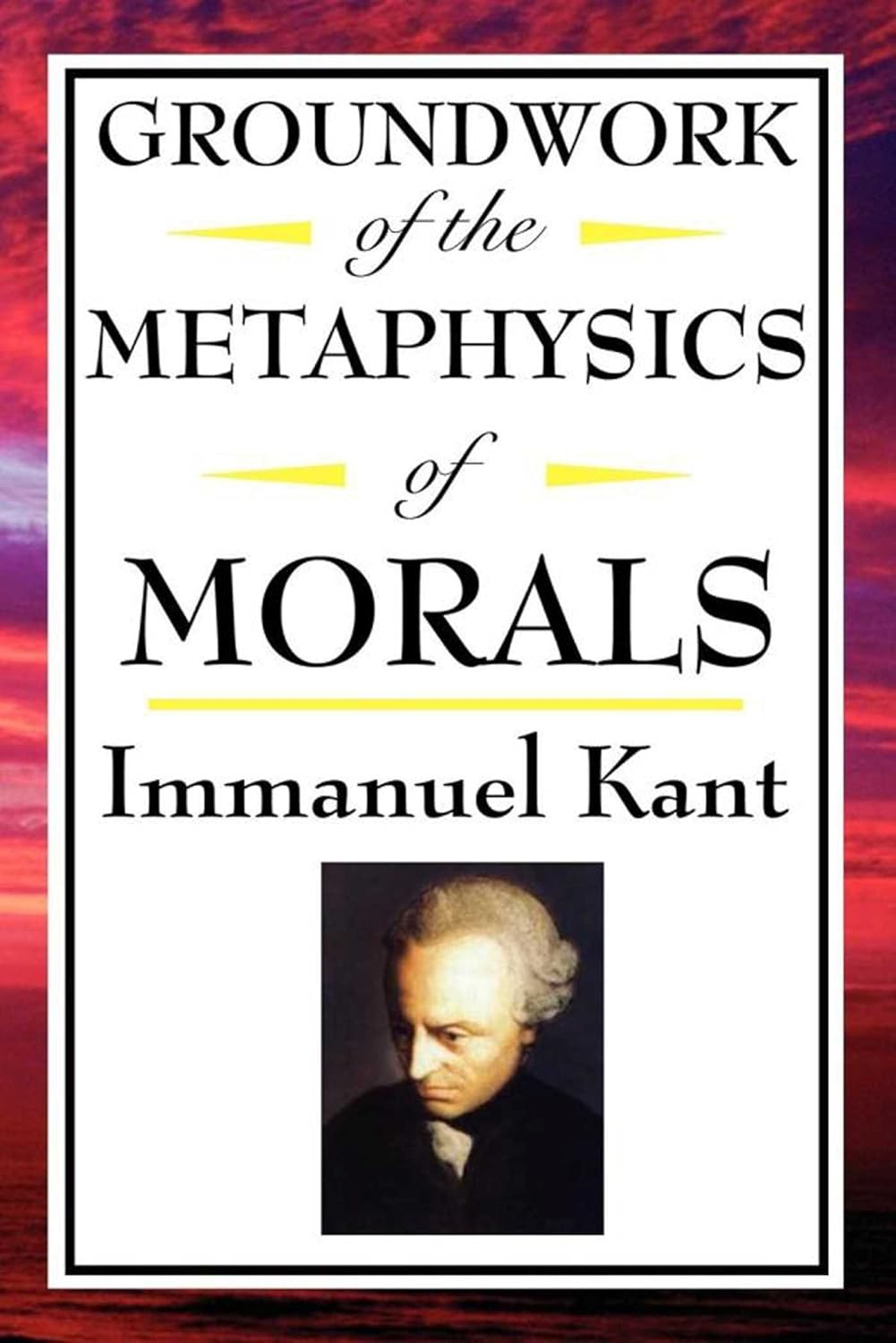
Kant
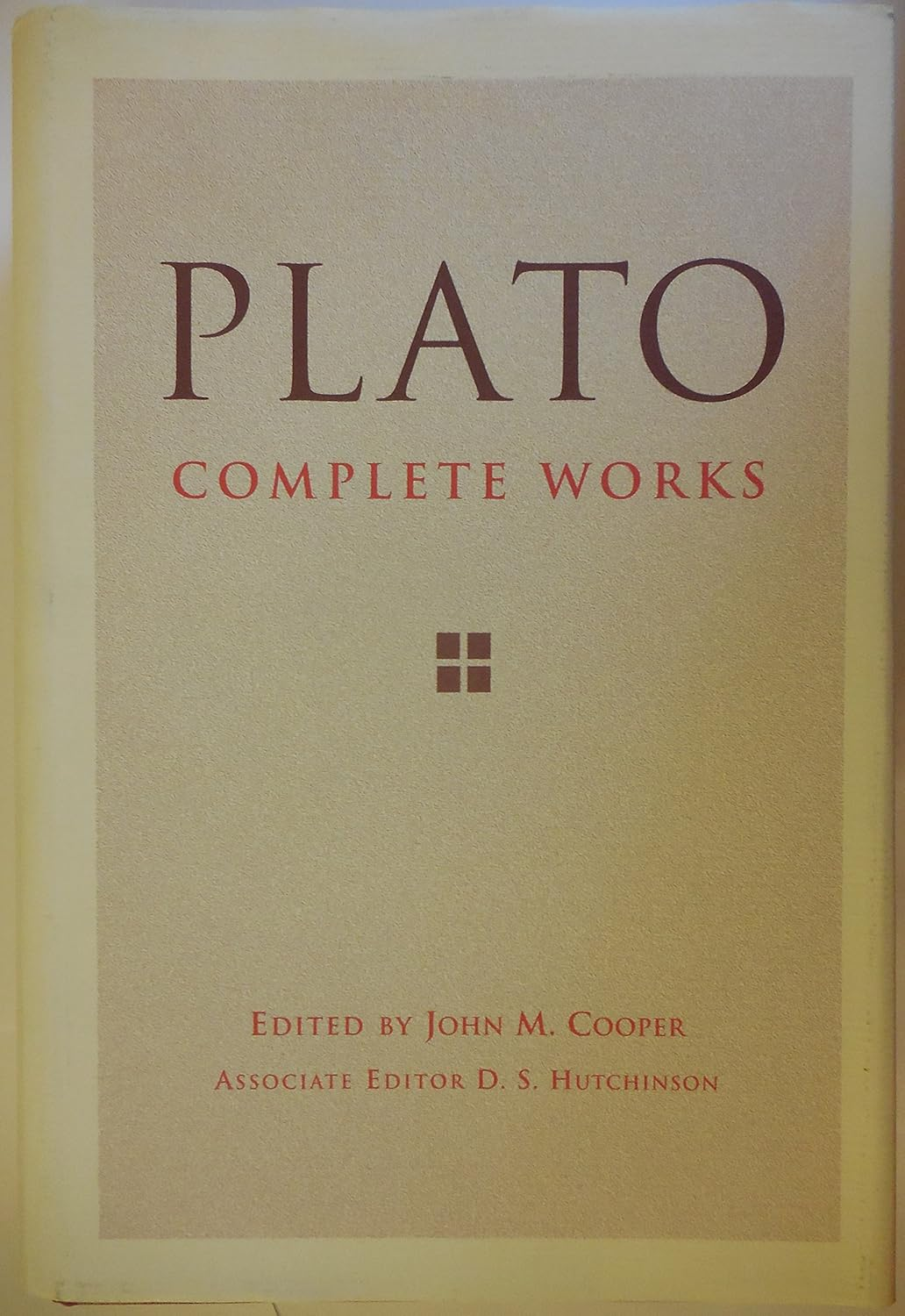
Plato
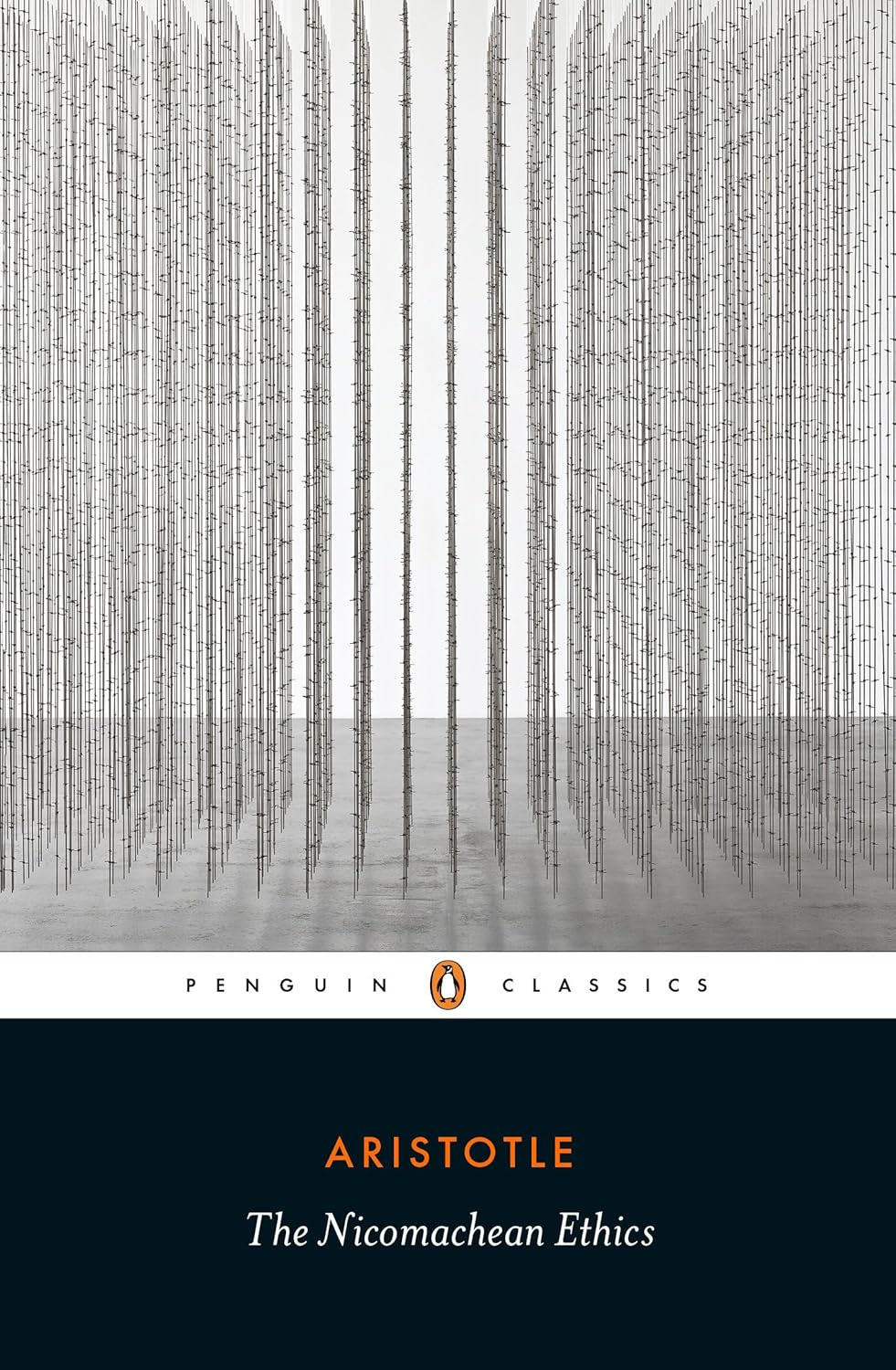
Aristotle
Other Interviews:
Diderot, Sade, Herbart, Helmholtz, Heine, Rousseau, Cohen, Machiavelli, LaMettrie, Smith, Buchner, Lange,
Newton, Berkeley, Hobbes, Locke, Cudworth, Hume, Leibniz, Leporin Erxleben,
Fichte, Schiller, Herder, Kierkegaard, Schelling, Kant, Dilthey, Marx, Descartes, Hegel, Schopenhauer,
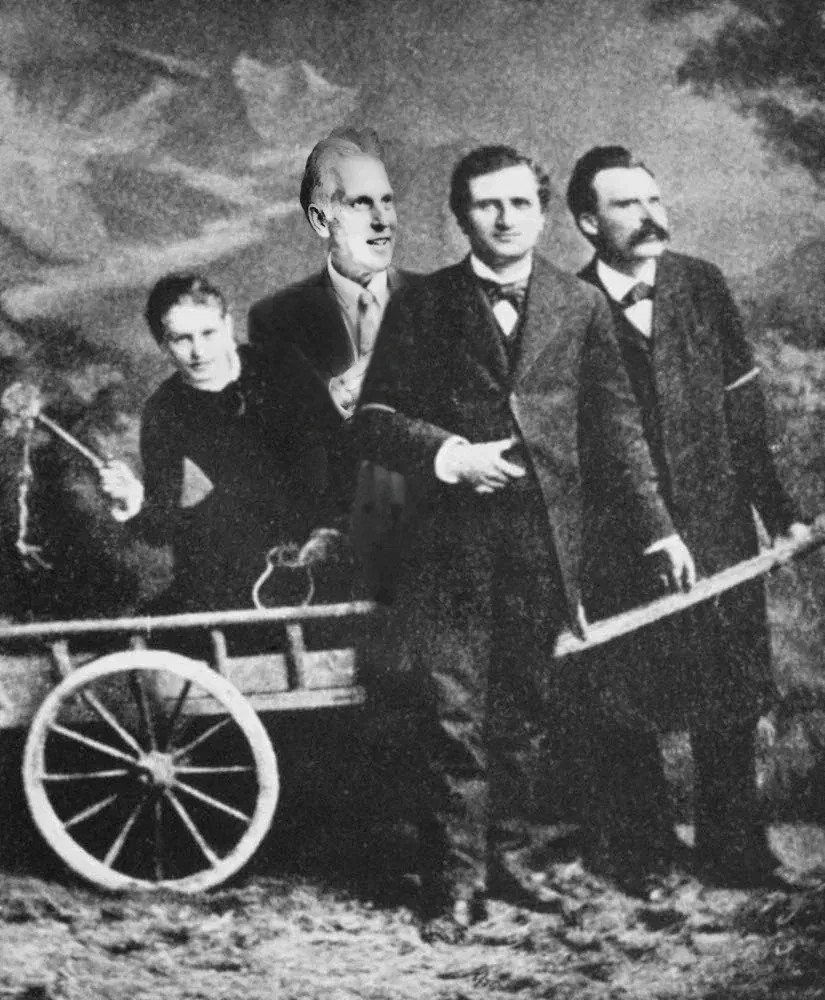
About the Author
Richard Marshall is still biding his time.